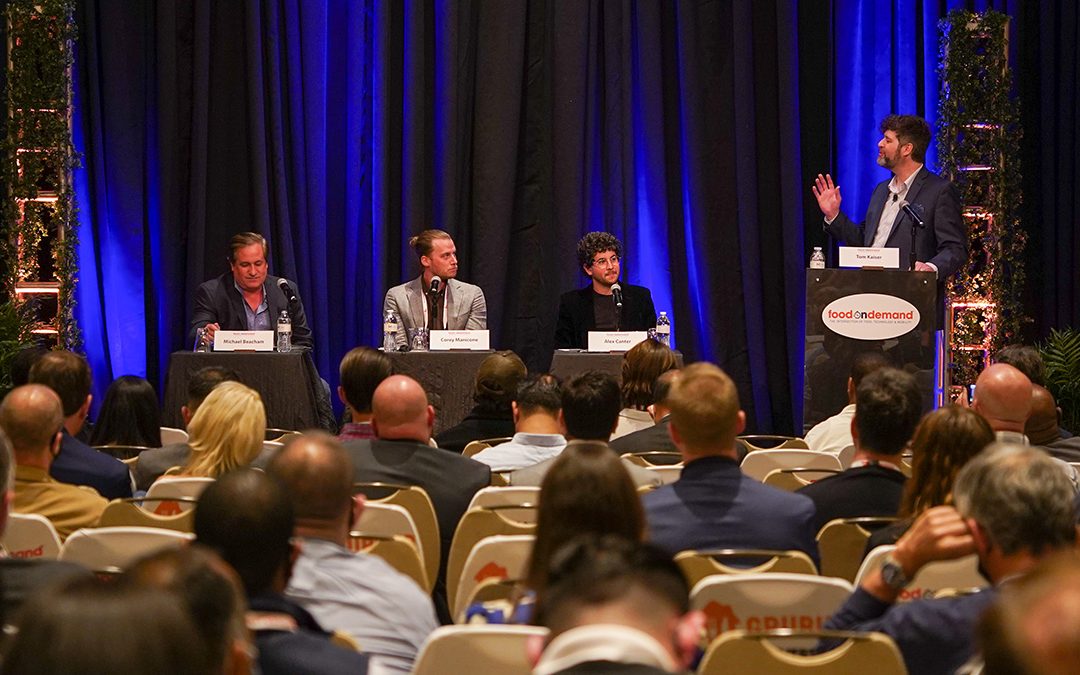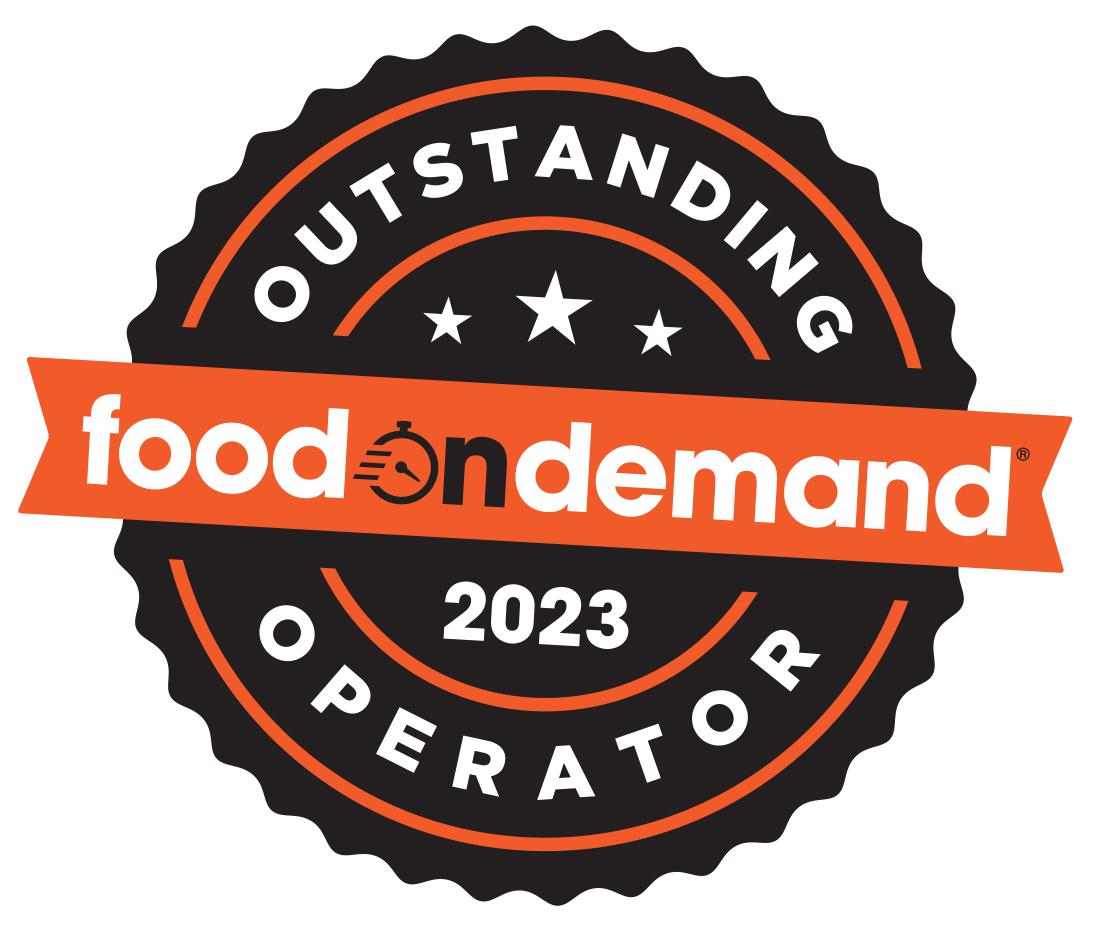Michael Beacham of REEF Technology, Corey Manicone of Kitchen United and Alex Canter of Nextbite discussed the future of virtual and ghost kitchens with moderator Tom Kaiser at the Food On Demand Conference.
The young virtual restaurant and ghost kitchen business is in a “huge experimental phase,” said Alex Canter, CEO of Nextbite, on opening day of the Food On Demand Conference. He considers that a good thing.
“We’re seeing lots of restaurants try to do their own brands, lots of restaurants partnering with other people’s brands. It’s not a winner-take-all situation. The early days are still upon us and the best is yet to come.”
But Canter has learned a few things since he started a virtual restaurant of sorts at his family restaurant, Canter’s Deli in Los Angeles. “Gone are the days that you can just upload a brand online and expect it to be successful on day one without any intention and strategy and thoughtfulness,” said Canter, who also created an online ordering platform called Ordermark, which this week changed its name to Nextbite.
“Back when I launched my first virtual restaurant in 2018, a grilled cheese brand, it did very, very well because it was early on. Now you have to be extremely intentional about what you’re putting online, and the marketing and strategy that goes into it,” Canter said.
The difference between success and failure in virtual restaurants is marketing spend, said Corey Manicone, SVP of strategy at Kitchen United. He recently sold his company Zuul to the much larger Kitchen United brand. “The most successful virtual restaurants are those that have reach. I think we’ll see that continue to be a theme and kind of an anchor in getting the brand out there.”
But smaller operators, especially, can struggle to make money from virtual kitchens. “I was even guilty of this in the early days, thinking it was a low-asset, efficient way to open. You can open for less than $100,000,” Manicone said is the mindset of many. “But actually those dollars put into bricks and mortar need to go into marketing. You need to pay for the digital real estate, the frontage that is online, and that’s what’s not working is folks aren’t putting enough into marketing.”
Michael Beacham, president of REEF Technology, said he’s seen people struggle if they aren’t seasoned restaurant operators. “At the end of the day it’s still the restaurant business, and you need restaurant people to do that,” he said about operating virtual or ghost kitchens. “The best ones are when restaurant people are running restaurants.
“This is a very difficult space to navigate, and if you’re not very passionate about it, and it’s not in your blood to make sure that it’s successful, you’ll take shortcuts, you’ll make mistakes,” Beacham said. “I’ve seen a lot of companies especially outside the U.S., and they say, ‘I’ll build a brand and hire some people and it will be easy,’ and it’s not.”
Asked by moderator Tom Kaiser, editor of Food On Demand, how they would advise an aspiring chef who wants to open a restaurant, the panelists gave optimistic answers, mostly.
“Clearly it’s follow your dream,” said Beacham. “It’s so much easier with the way the industry is now, to take your passion, put it into a menu and a brand, and launch it. You don’t have to leverage your house and put it into a bricks and mortar restaurant. You’re able to test things.”
One of his clients at REEF is Man Vs. Fries, which one year ago had one unit. “But now we’ve put him into 100 units. It will be more than $40 million on our platform this year, without investing any money. The ability to do that didn’t exist before. It gives people optionality to take their dream and actually see it.”
Manicone’s advice: “Get good at TikTok,” he said, only half-jokingly. “No, step one is build a brand and create a following.”
But Canter, who’s grown up in his family’s restaurant business, had different advice. “RUN. Run as far as you can! Yeah, go back to school,” he said, but then laughed. “We’re in an extremely tough industry. Most restaurants fail in the first couple of years for a reason. You have to be extremely experimental with everything.
“My family used to say, ‘If nobody writes an article about us in the L.A. Times we’re screwed.’ That’s what we used to rely on. And now there’s all these different things you can try and experiment,” he said. “Go try as many things as you can, experiment as much as possible, and go get the customers.”
The Food On Demand Conference, presented by Food On Demand, Franchise Times and the Restaurant Finance Monitor, continues through Friday noon, at the Bellagio in Las Vegas. Read more coverage from FODC here.




